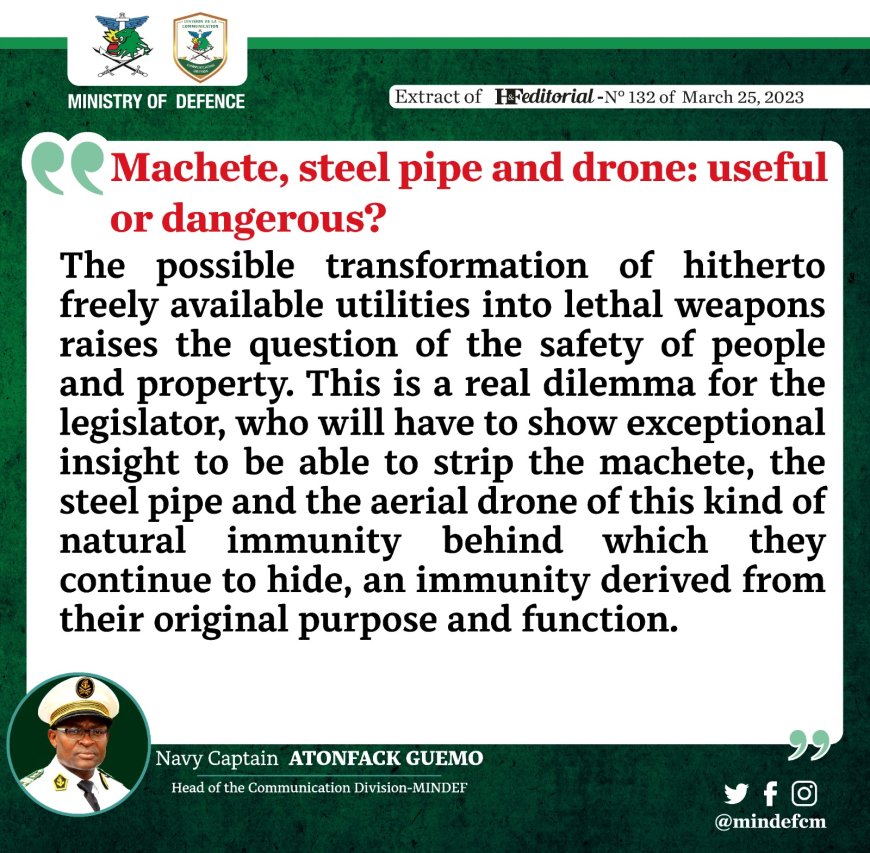Machete, steel pipe and drone: useful or dangerous ?

If one were to look only at the appearance and even the purpose of each of these materials, it would be very difficult to find any similarity between them. Just as a machete is a flat, tapered object used for weeding or felling trees, a plumbing pipe is a tube used to transport fluids, while an aerial drone is used to take pictures or even deliver packages from the third dimension.
In short, these are just differences. But these differences are superficial, because machetes, steel pipes and aerial drones can all be transformed into deadly weapons. In our urban and rural areas, many people are killed with machetes, in violence ranging from banditry to love affairs. The same tool is used in inter-communal conflicts, the most notorious of which was the 1994 genocide in Rwanda. In the space of a few weeks, almost a million people lost their lives.
The steel tube is also subject to dangerous misuse, with the metal tube being used as a barrel for supposedly traditional firearms. In addition to the animals that are poached, individuals, communities and government officials suffer the effects of these deadly devices.
Finally, drones are not spared from this public misuse of tools, as these remotely piloted flying objects allow unscrupulous individuals to conduct surveillance, invade private spaces and even carry out bombing missions, if not facilitate other illegal activities across borders.
The possible transformation of hitherto freely available utilities into lethal weapons raises the question of the safety of people and property. This is a real dilemma for the legislator, who will have to show exceptional insight to be able to strip the machete, the steel pipe and the aerial drone of this kind of natural immunity behind which they continue to hide, an immunity derived from their original purpose and function.
Admittedly, a legal framework already exists for the acquisition and use of some of these tools, but the actual and potential violations of this body of law pose the risk of an anachronism that, for lack of adaptation, is conducive to all kinds of excesses.
Since freedom and security are at stake, the question is how much should be invested in each of them to ensure a better enjoyment of both !
Cyrille Serge Atonfack Guemo, Divcom-Mindef










